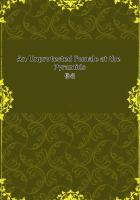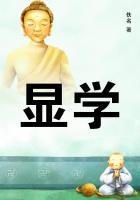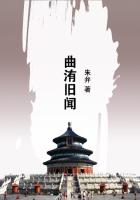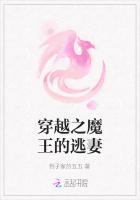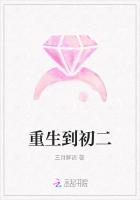Criticised as a tale of modern life (and it was criticised in that character), it could not be very highly esteemed. But the essence of Maud, of course, lies in the poetical vehicle. Nobody can cavil at the impressiveness of the opening stanzas -"I hate the dreadful hollow behind the little wood";with the keynotes of colour and of desolation struck; the lips of the hollow "dabbled with blood-red heath," the "red-ribb'd ledges," and "the flying gold of the ruin'd woodlands"; and the contrast in the picture of the child Maud -"Maud the delight of the village, the ringing joy of the Hall."The poem abounds in lines which live in the memory, as in the vernal description -"A million emeralds break from the ruby-budded lime";and the voice heard in the garden singing "A passionate ballad gallant and gay,"as Lovelace's Althea, and the lines on the far-off waving of a white hand, "betwixt the cloud and the moon." The lyric of "Birds in the high Hall-garden When twilight was falling, Maud, Maud, Maud, Maud, They were crying and calling,"was a favourite of the poet.
"What birds were these?" he is said to have asked a lady suddenly, when reading to a silent company.
"Nightingales," suggested a listener, who did not probably remember any other fowl that is vocal in the dusk.
"No, they were rooks," answered the poet.
"Come into the Garden, Maud," is as fine a love-song as Tennyson ever wrote, with a triumphant ring, and a soaring exultant note. Then the poem drops from its height, like a lark shot high in heaven; tragedy comes, and remorse, and the beautiful interlude of the "lovely shell, Small and pure as a pearl."Then follows the exquisite "O that 'twere possible,"and the dull consciousness of the poem of madness, with its dumb gnawing confusion of pain and wandering memory; the hero being finally left, in the author's words, "sane but shattered."Tennyson's letters of the time show that the critics succeeded in wounding him: it was not a difficult thing to do. Maud was threatened with a broadside from "that pompholygous, broad-blown Apollodorus, the gifted X." People who have read Aytoun's diverting Firmilian, where Apollodorus plays his part, and who remember "gifted Gilfillan" in Waverley, know who the gifted X. was. But X. was no great authority south of Tay.
Despite the almost unanimous condemnation by public critics, the success of Maud enabled Tennyson to buy Farringford, so he must have been better appreciated and understood by the world than by the reviewers.
In February 1850 Tennyson returned to his old Arthurian themes, "the only big thing not done," for Milton had merely glanced at Arthur, Dryden did not "Raise the Table Round again,"and Blackmore has never been reckoned adequate. Vivien was first composed as Merlin and Nimue, and then Geraint and Enid was adapted from the Mabinogion, the Welsh collection of Marchen and legends, things of widely different ages, now rather Celtic, or Brythonic, now amplifications made under the influence of mediaeval French romance.
Enid was finished in Wales in August, and Tennyson learned Welsh enough to be able to read the Mabinogion, which is much more of Welsh than many Arthurian critics possess. The two first Idylls were privately printed in the summer of 1857, being very rare and much desired of collectors in this embryonic shape. In July Guinevere was begun, in the middle, with Arthur's valedictory address to his erring consort. In autumn Tennyson visited the late Duke of Argyll at Inveraray: he was much attached to the Duke--unlike Professor Huxley. Their love of nature, the Duke being as keen-eyed as the poet was short-sighted, was one tie of union. The Indian Mutiny, or at least the death of Havelock, was the occasion of lines which the author was too wise to include in any of his volumes: the poem on Lucknow was of later composition.
Guinevere was completed in March 1858; and Tennyson met Mr Swinburne, then very young. "What I particularly admired in him was that he did not press upon me any verses of his own." Tennyson would have found more to admire if he had pressed for a sight of the verses. Neither he nor Mr Matthew Arnold was very encouraging to young poets: they had no sons in Apollo, like Ben Jonson. But both were kept in a perpetual state of apprehension by the army of versifiers who send volumes by post, to whom that can only be said what Tennyson did say to one of them, "As an amusement to yourself and your friends, the writing it" (verse) "is all very well." It is the friends who do not find it amusing, while the stranger becomes the foe. The psychology of these pests of the Muses is bewildering. They do not seem to read poetry, only to write it and launch it at unoffending strangers. If they bought each other's books, all of them could afford to publish.
The Master of Balliol, the most adviceful man, if one may use the term, of his age, appears to have advised Tennyson to publish the Idylls at once. There had been years of silence since Maud, and the Master suspected that "mosquitoes" (reviewers) were the cause.
"There is a note needed to show the good side of human nature and to condone its frailties which Thackeray will never strike." To others it seems that Thackeray was eternally striking this note: at that time in General Lambert, his wife, and daughters, not to speak of other characters in The Virginians. Who does not condone the frailties of Captain Costigan, and F. B., and the Chevalier Strong?
In any case, Tennyson took his own time, he was (1858) only beginning Elaine. There is no doubt that Tennyson was easily pricked by unsympathetic criticism, even from the most insignificant source, and, as he confessed, he received little pleasure from praise. All authors, without exception, are sensitive. A sturdier author wrote that he would sometimes have been glad to meet his assailant "where the muir-cock was bailie." We know how testily Wordsworth replied in defence to the gentlest comments by Lamb.

